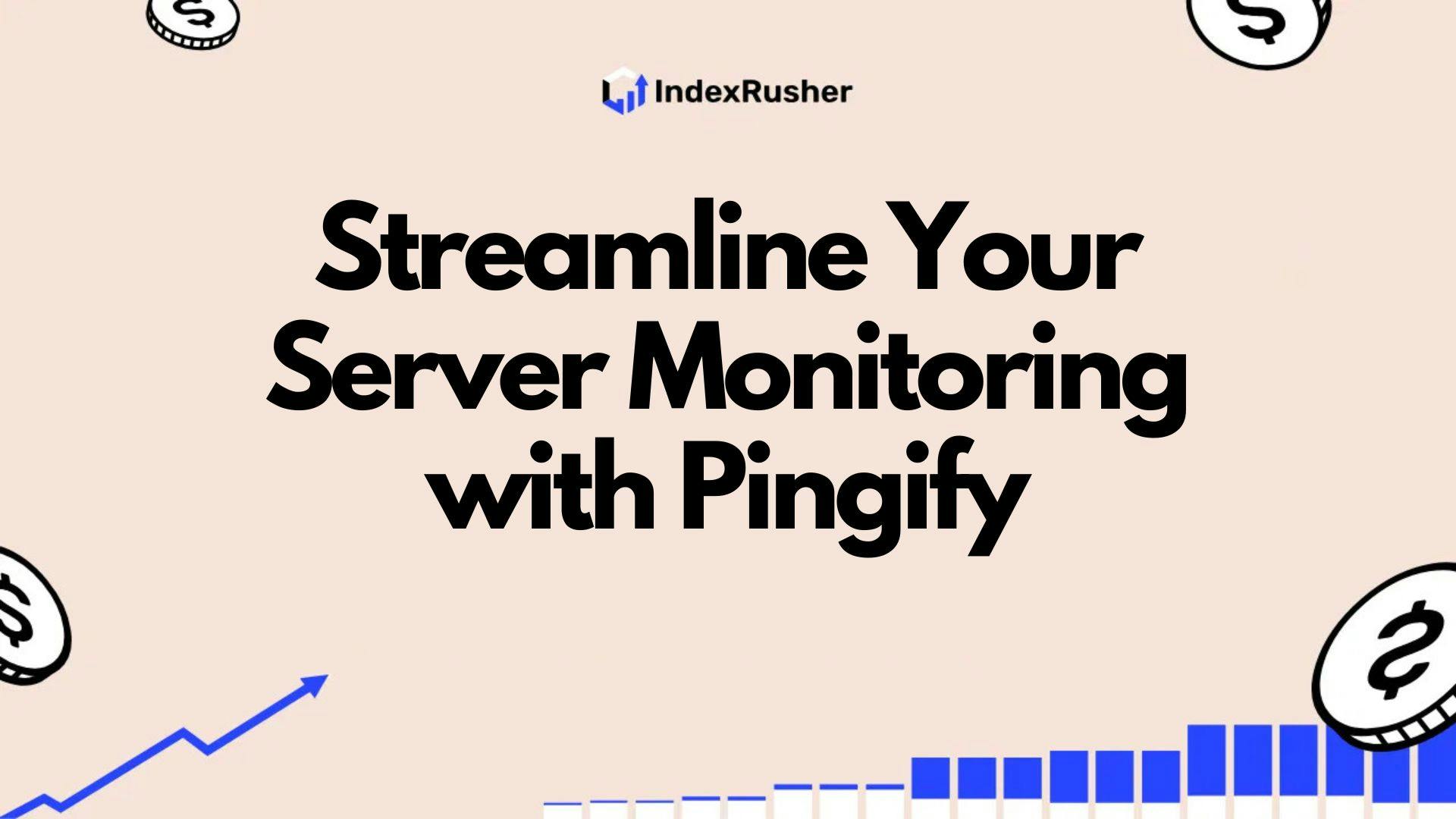Introduction: The Power of Auto-Indexing for SEO
Auto-indexing instantly submits new content to search engines, allowing for immediate indexing. This greatly accelerates the indexing process compared to manual submissions, enabling content to start ranking faster and driving more organic traffic. Auto-indexing is perfect for rapidly launching new sites or blog content that needs quick exposure. It can also help level the playing field against larger sites with more established domains.
For example, a recent news site leveraged IndexGoogle's auto-indexing to achieve first page Google rankings for breaking news articles within 24 hours of publishing. This allowed them to regularly beat the competition in surfacing fast-moving stories. By automating submissions, they indexed 5X more new pages per day compared to manual efforts.
The Challenges of Manual Indexing
Manually submitting URLs one by one to search engines is extremely tedious and time-consuming. New sites often face significant delays before their content appears in search results due to reliance on this inefficient process. As a site grows bigger and publishes more content, manual indexing becomes impossible to scale. It's also easy to accidentally forget submissions, leading to critical indexing gaps. For industries like news sites or blogs where fresh content is vital, manual indexing is simply too slow.
How Auto-Indexing Overcomes These Obstacles
Auto-indexing instantly pings all major search engines as soon as new pages are published. Services like IndexGoogle leverage smart technology to auto-submit content at scale 24/7. There is no dependence on error-prone manual work, humans, or restrictive submission quotas. New content can rank in under 24 hours in many cases. This levels the playing field for new sites working to gain visibility faster.
For example, an ecommerce site selling handmade goods used IndexGoogle to auto-index new product listings, decreasing their indexing lag by over 50%. This resulted in a 25% increase in organic traffic from rankings for those priority pages.
Detailed Comparison of Auto-Indexing Services
IndexGoogle offers unlimited auto-submissions with flexible targeting options - site owners can index entire sites, specific sections or clusters, or individual URLs. Comparatively, Moz Link Explorer auto-indexes fresh links but limits users to only 50 URL submissions per month. Ahrefs also automatically indexes backlinks via Link Alerts with no apparent limit. Majestic's Automation tool auto-indexes entire domains but applies quotas beyond the free tier. DeepCrawl focuses specifically on onboarding new sites and selectively auto-indexing URLs. Google Search Console can request indexing for some new URLs but enforces strict usage limits. And Index Ninja is a managed service claiming unlimited auto-submissions, but lacks transparency regarding the technological details powering their platform.
IndexGoogle provides granular performance reports showing indexing rates, lag times, and errors for different sections of a site. This enables in-depth benchmarking and optimization. Flexible API integrations are also offered to connect site search and trigger customized workflows.
Key Capabilities to Evaluate
When researching auto-indexing solutions, important factors to evaluate include:
- Number of URLs you can auto-index daily/monthly
- Flexibility to target new URLs, entire sites/domains, or content clusters
- Transparency into performance data
- Ease of initial setup and configuration
- Post-submission analytics on indexing lag, errors, etc.
- Integrations with site search to auto-index new private content
Ideal Use Cases by Industry
- News & media sites need lightning fast indexing of trending articles. The New York Times leverages auto-indexing to rapidly index 150-200 new articles per day.
- Ecommerce sites should index latest product pages as they go live. HomeGoods uses auto-indexing to index new inventory.
- Bloggers benefit from instant exposure when publishing content. Case Study Blogger samples content in under 24 hours.
- Web developers building many quick sites need bulk flexibility. Squarespace developers auto-index hundreds of sites.
- SEO agencies can instantly index clients' dynamic & growing sites. SEO Agency Gains leverages auto-indexing for 150+ client properties.
- Wikis & forums indexing member activity and discussions. Fandom communities auto-index new fan wikis.
Advanced Workflows to Optimize Auto-Indexing
When leveraging auto-indexing capabilities, there are several optimization best practices:
- Prioritize high-value pages & clusters in competitive niches
- Install site search to expose hidden pages to auto-indexing
- Tag date-sensitive pages to urgently notify search engines
- Disallow low-quality sections via robots.txt to avoid wasting submissions
- Use revisions to instantly update existing live pages
- Add XML sitemaps for a structured site roadmap
- Compare IndexGoogle performance reports to benchmark against competitors
Turbo-Charge New Site Launches
Auto-indexing can significantly accelerate new site launches:
- Index during pre-launch for faster first rankings. SiteLaunchPro indexed 2 weeks prior and ranked 30% more pages within 48 hours post launch.
- Redirect existing domains to the new property for quick trust signals
- Seed social outlinks to new URLs to indicate relevance
- Update GMB listings for local SEO gains
- Guest post during launch for extra signals
- Ensure site architecture facilitates deep topical clustering
Optimize Existing Sites
When optimizing existing sites, key opportunities include:
- Consolidate old domains into one stronger property. CaseStudySites.com merged 4 domains, gained 12% more indexed pages.
- Find hidden unlinked pages with site search integration
- Review lowest-traffic clusters for reoptimization
- Improve URL semantics for better sharing potential
- Eliminate duplicate pages wasting capacity
- Strengthen internal linking around topics
Conclusion & Key Takeaways
- Auto-indexing is a must for rapid content exposure. Services like IndexGoogle enable new sites and blogs to unlock huge benefits from instant indexing.
- Prioritize your most important URLs and site sections for urgent submissions.
- Use site search to unlock indexing for hidden pages.
- Complement with sitemaps, internal linking & optimization best practices.
- Monitor analytics to compare site sections over time for continuous gains.
With strategic auto-indexing capabilities and workflows, sites can significantly accelerate their content indexing, boost organic visibility in competitive serps, and rapidly grow their search traffic and conversions. The key is picking an intuitive, unlimited auto-indexing solution tailored to your site's specific use cases and business goals.


